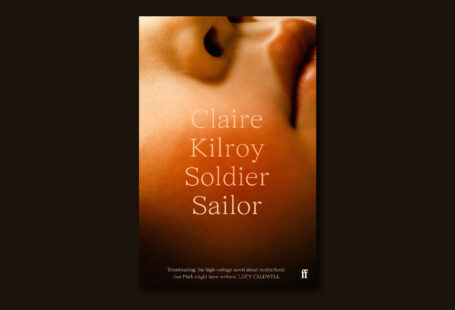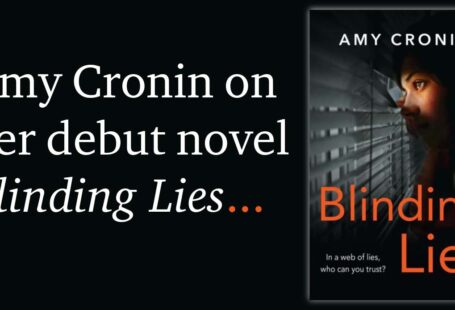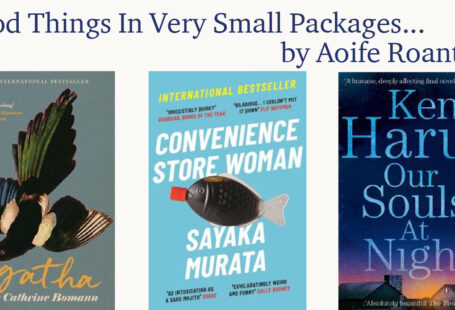‘Write what you know’. It’s the writing advice that most people have heard, and it’s advice I’ve never followed. In fifteen books, including the Maeve Kerrigan series and my latest stand-alone novel, The Killing Kind, I’ve always chosen to write about worlds I don’t know from personal experience. It’s not just wilful disregard for the rules of writing – I have good reasons for ignoring the received wisdom on this front!
First and foremost, it’s limiting. What if what you know just isn’t that exciting? The Killing Kind centres on a female barrister, Ingrid Lewis, as her professional life bleeds into her private life. Having been stalked by a terrifying client, John Webster, she has lost almost everything that mattered to her – but when she thinks someone is trying to harm her, Webster offers to help. Trusting him could save her life, or end it. My own working life, before becoming a writer, involved editing children’s books in a quiet, friendly office. It was low on drama, to say the least. That gave me the time to let my imagination run free, but I’ve always felt it would make a poor backdrop for a dramatic, chilling crime novel. There were no life-and-death moments; our main excitement was whether the colour printer was working.
Secondly, writing about what you know is boring. There’s no glamour in a job you do all the time – you know how much of it involves tedious admin. You know the rules and it probably wouldn’t occur to you to try to break them for dramatic effect. I did get a lot of crucial detail about court procedure from my husband, though, which should mean that The Killing Kind feels authentic. He’s got twenty years of experience as a criminal barrister, which was immensely useful to me. Having said that, it’s my job as an author to work out what bits of research need to go on the page; I used about a tenth of the procedural information I got from him. It would have been difficult for him, if not impossible, to differentiate between what happens in court and what happens that’s worth reading about, but I found it easy. What do you do if you don’t have an expert in your own home? Find one, by asking friends or haunting Twitter. Most people are only too glad to talk about their jobs, if you ask nicely. A general conversation can be more inspiring than having a prepared list of detailed questions, but it’s always a help to be able to check a detail when you’re writing or editing the final book.
A third issue with writing about a world you know well is that you might assume you know all about it when other perspectives will be very different. In researching my books, I often talk to people who do the job I’m writing about. For The Killing Kind I made a point of talking to several female barristers. Their experience of doing the job was markedly different from my husband’s war stories, and the demands it made on them were quite specific. Those brief conversations gave me a real insight into the characters I was creating in Ingrid – a clever, principled, funny and brave young woman with a stubborn streak a mile wide.
Finally, as an outsider I have a strong sense of what readers will want to know about court, down to the buildings themselves. The world of robing rooms, wigs and gowns seems familiar to most of us from television but very few of us will ever find ourselves inside a court room, even as an onlooker, and even fewer will make it into the closed world of legal chambers. I’ve tried to dispel some of the myths that are familiar about barristers – they’re poorly paid, as a rule, and self-employed, and spend their time shuttling from one brief hearing to another rather than grandstanding Rumpole-style in grand courtrooms – but I hope I’ve captured something of the drama, responsibility and excitement of a job where your words might change someone’s life for better or worse, even without the added tension of having a stalker at your shoulder.

Jane Casey has written ten crime novels for adults and three for teenagers. A former editor, she is married to a criminal barrister who ensures her writing is realistic and as accurate as possible.
This authenticity has made her novels international bestsellers and critical successes. The Maeve Kerrigan series has been nominated for many awards: in 2015 Jane won the Mary Higgins Clark Award for The Stranger You Know and Irish Crime Novel of the Year for After the Fire. In 2019, Cruel Acts was chosen as Irish Crime Novel of the Year at the Irish Book Awards. It was a Sunday Times bestseller.
Born in Dublin, Jane now lives in southwest London with her husband and two children.






Recent Comments